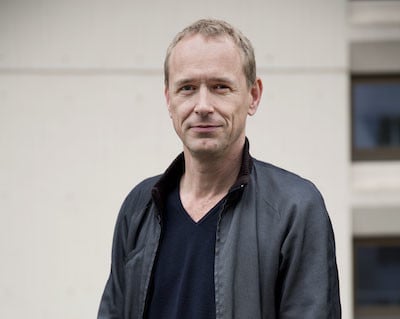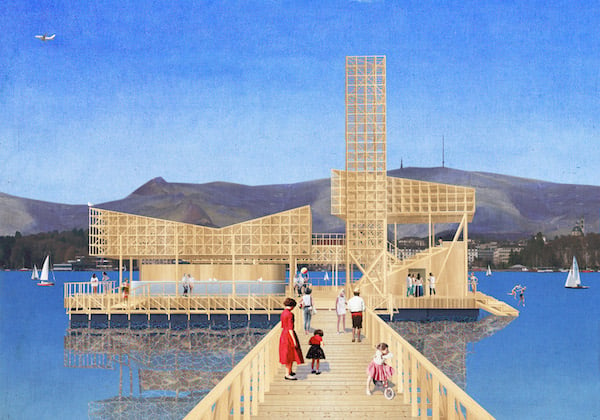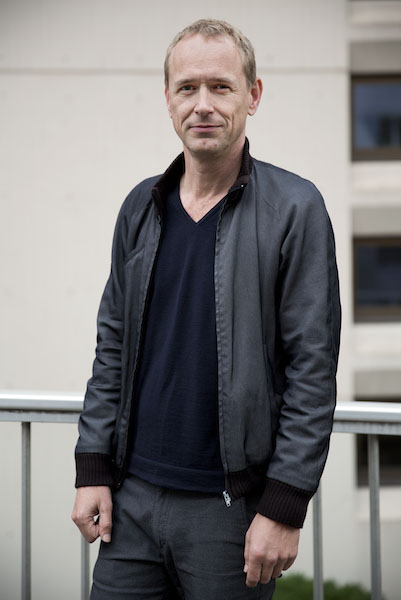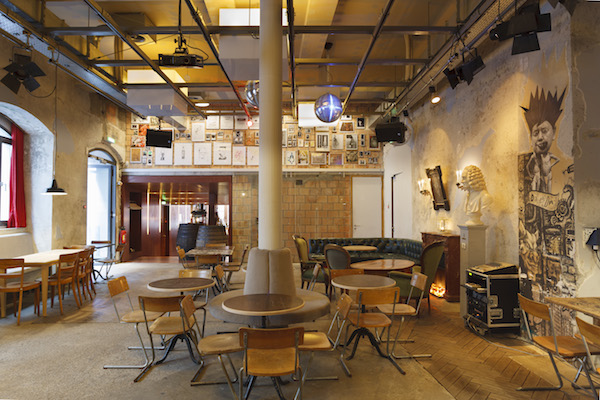Art & Exhibitions
Christian Jankowski Announces ‘Joint Venture’ Projects and Artist List for Manifesta 11
Artists collaborate with professionals ranging from engineers to sex workers.

Photo: courtesy Manifesta.
Artists collaborate with professionals ranging from engineers to sex workers.

Amah-Rose Abrams


Rendering of Pavillon of Reflections
Photo: © ETH Studio Emerson
Two months ahead of Manifesta 11 opening in Zurich this June, the artist list and details of some of the exhibitions have been announced with participating artists including Michel Houellebecq, Maurizio Cattelan, and Jon Rafman.
The press conference—in keeping with the Manifesta 11 theme of “What People Do for Money: Some Joint Ventures”—took place in a fully operational fire station complete with two live drills.
The curator, artist Christian Jankowski, announced the collaborative projects taking place, and as the theme suggests they all involve artists working together with the professionals of Zurich. Houellebecq will join a Zurich doctor for a project titled How is Michel Houellebecq?, Mike Bouchet is collaborating with the local sewage plant, Cattelan is working together with a Paralympic athlete, Teresa Margolles with a transsexual sex worker, Marguerite Humeau joins a robotics engineer, and John Arnold is working with a Michelin starred chef based in the city.
In addition to the main exhibition, Jankowski co-curates “The Historical Exhibition: Sites Under Construction” with British writer and curator Francesca Gavin, which will include works by Andreas Gursky, Thomas Demand, and Sophie Calle.

Christian Jankowski
Photo: courtesy Manifesta
“I thought this was a good way to look at the city from different perspectives; not only to look at the city but how art relates to these different viewpoints,” Jankowski told artnet News after the press conference.
He refers to the Zurich based professionals taking part in the so-called “joint ventures” as hosts who essentially welcome the participating artists into their world.
“All the artists are in these professionalized environments and it is in these environments that they start to get inspiration for an artwork but also the materials they need for making the artwork,” Jankowski explained.
The idea is to open out the art world beyond the art world; both Jankowski and Gavin emphasized that they wanted to reach beyond the “boring” art press, and connect with the wide world and thus bring in a new perspective.
Perhaps the most spectacular sounding event of the biennial is the Pavilion of Reflections, a floating arena which will be on Lake Zurich for the duration of the Manifesta biennale. When the satellite exhibitions featuring the collaborative works open, films documenting the process of each of these collaborations will be broadcast on a screen in the floating pavilion. In front of the screen will be a swimming pool so viewers can relax and take in the stories behind the artworks and learn more about the lives of people living and working in Zurich.

Cabaret Voltaire
Photo: Martin Stollenwerk
In respect of the celebration of the 100 years of Dada, there will also be a temporary refurbishment of the legendary Cabaret Voltaire, which will be transformed into an office space. Those attending will be invited to submit ideas for joint ventures.
Manifesta 11 follows its controversial predecessor, which took place at the Hermitage in St Petersburg. But holding the biennial in the art-loving city of Zurich has its own controversies.
Founding Director of Manifesta, Hedwig Fijen, wrote in a statement, “Putting together a Manifesta in Switzerland, a country that—through its system of direct democracy, high standard of living, and protectionist foreign policy—is said to have achieved an almost idyllic character, can feel quite surreal at a time when Europe is confronted with the most dramatic humanitarian crisis since the Second World War. This Manifesta takes the form it does exactly because of that discrepancy.”
All things considered the final exhibition in June should be an eye opener for both the people of Zurich and the art going public.
Manifesta 11 will be on view at venues around Zurich from June 11 until September 18, 2016